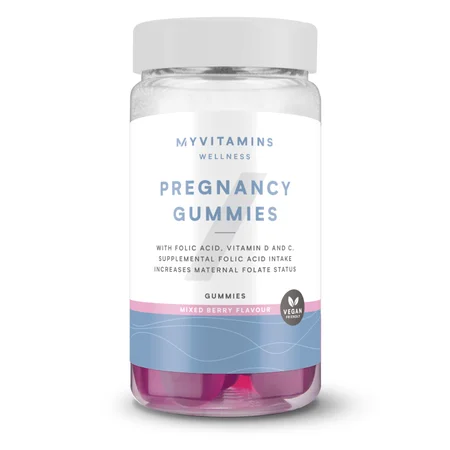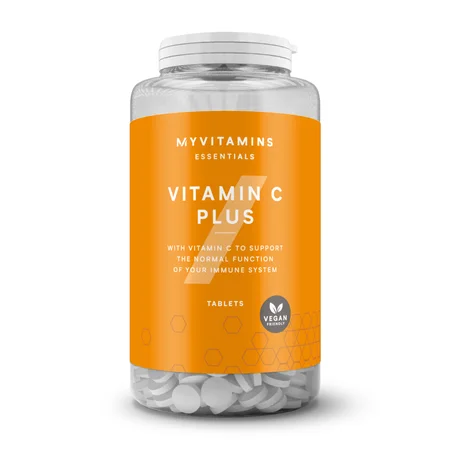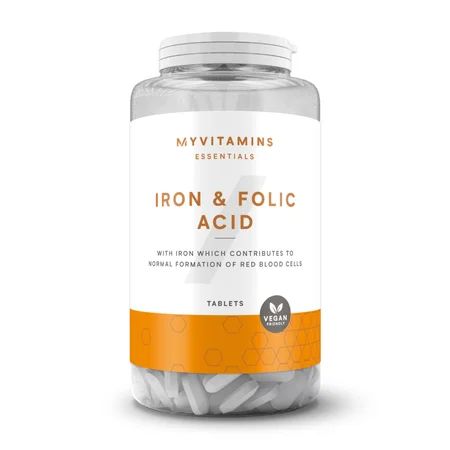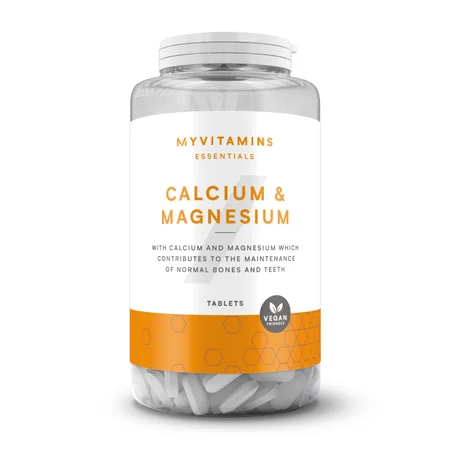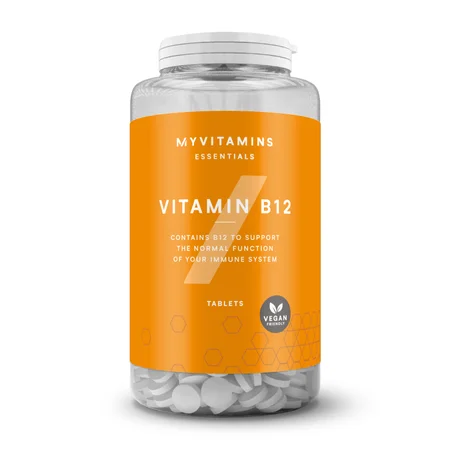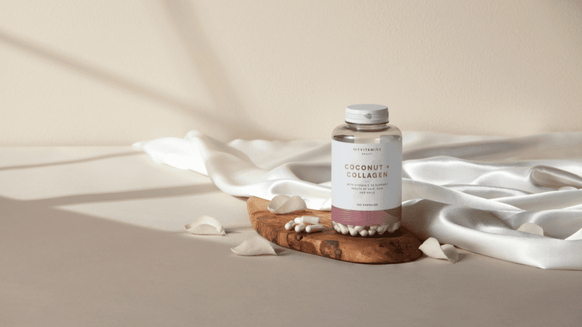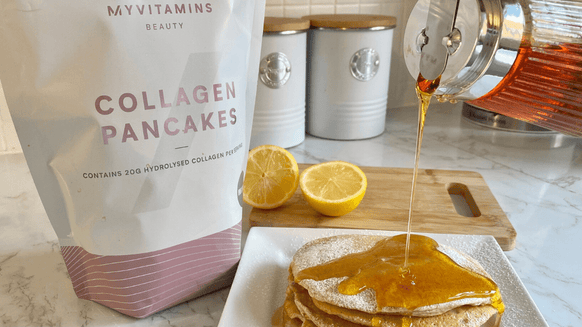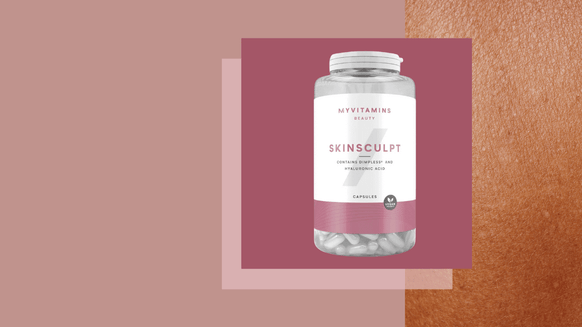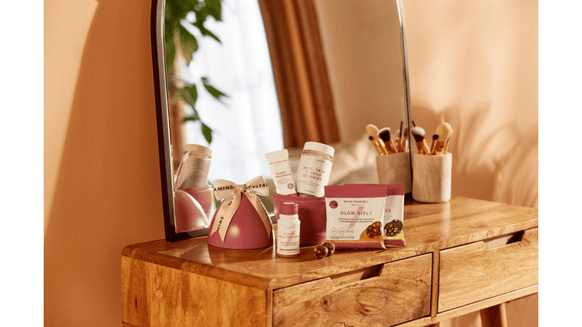6 Best Prenatal Vitamins & Supplements: Benefits And More

It is important to get the night amount of nutrients at every stage of life, however, during pregnancy it is vital in order to nourish both you and your baby. While you can expect your intake for calories and macronutrients (carbohydrates, protein and fat) to increase, you may not realise that your requirements for micronutrients also increase, and much more significantly.
Micronutrients include vitamins and minerals, and while there are some that you are recommended to avoid increasing such as vitamin A, there are a few you really need to consider monitoring throughout your pregnancy.
- What Are Prenatal Vitamins?
- Benefits & Dosage of Prenatal Vitamins
- 6 Best Prenatal Vitamins
- Talk To Your Doctor
- Take Home Message
What Are Prenatal Vitamins?
While it is ideal to achieve all your nutritional needs through a well balanced diet, there are certain times when this might not quite be possible. Growing a whole new human can be one of these cases. During pregnancy, your body uses a lot of its own resources to help grow your baby, including nutrients. This is why, especially for some nutrients, supplementation is very important.
Additionally, there are some pregnancy symptoms that might hinder even the best planned diets – such as morning sickness, cravings, and loss of appetite. Replacing these nutrients is extremely important which where supplements can play a roll.
Prenatal vitamins are exactly what the name suggests, supplementation of various vitamins and minerals for women who are pregnant, or planning to get pregnant (prenatal). There are even postnatal supplements to help you recover after pregnancy. There are a range of different brands who produce their own supplements, each containing the same or similar composition of recommended nutrients to ensure both mum and baby are healthy during this important time in their lives. It is important that you choose the supplement that is best for you and your baby, considering your own eating habits, medical needs, and any intolerances or allergies you may have.
Benefits & Dosage of Prenatal Vitamins
As previously mentioned, the ideal way to support yours and your baby’s nutrition during pregnancy is through a healthy balanced diet, but it is understandable that this might be harder than you think. With morning sickness, cravings, loss of appetite, fatigue, and time restraints, eating the right diet can be hard. These is where pregnancy supplements may come in handy.
Supplementation can come in the form of individual nutrients, or a combination designed for pregnancy. Either of these options have their benefits. They are a convenient way to ensure you are meeting the required nutrients during your pregnancy, especially during periods where eating food might be a struggle such as sickness.
If you are expecting a multiple birth, your micronutrient need is obviously going to be higher, and you might find it hard to eat your nutrients purely through food so supplements will keep you topped up. Although it is critical to avoid cigarettes during your pregnancy, if you do choose to continue you may find that you have an increased requirement of certain nutrients such as vitamin C and folate (1).
The dosage of prenatal vitamins will depend on the supplement and your own requirements. It is recommended that all women trying to get pregnant take 400mg of folic acid until they reach 12 weeks pregnant, however, some may find they have to take more. The recommended amount of vitamin D is 10 micrograms per day during the darker months (October to April) however, you might find it beneficial to take vitamin D throughout your pregnancy as tiredness and limited mobility may mean you spend less time out in the sun.
If you take a combined pregnancy supplement, always follow the dosage on the packaging and if you have any specific questions about any of the nutrients included, speak to your GP or midwife.
Are There Any Side Effects?
As with any vitamins or supplements, there is a chance of suffering from side effects. For most people, these are extremely mild or non-existent, however, you still need to be aware of them. These side effects can include constipation, nausea, bloating and gas, allergic reactions, dry or itchy skin, and bruising. There is also the chance of too much of a specific nutrient causing unwanted side effects, again, these symptoms are very similar to the above-mentioned side effects.
A lot of these side effects go hand in hand with many pregnancy symptoms. There is a possibility that the brand of supplement you use includes an ingredient that doesn’t agree with your body, so in a lot of cases, just switching the brand you’re using can help manage side effects. If any of these side effects are new, or worrying, then speak to your GP.
6 Best Prenatal Vitamins
While every nutrient is important and has their necessary job within the body, there are some that pregnant women need to be more aware of in order to help with their pregnancy. These key vitamins and minerals can be taken as individual supplements or combined into pre/postnatal supplements, as well as those which can be taken throughout pregnancy. These key nutrients are.
- Folic acid
- Vitamin D
- Vitamin C
- Iron
- Calcium
- Vitamin B12
Folic Acid
There is no doubt that folic acid is an essential supplement during pregnancy. This vitamin plays an important part in the development of the foetus and reduces the risk of the baby developing neural tube defects, such as spina bifida. In general, it helps with the formation of red blood cells, which carry oxygen around the body, it is vital in helping the immune system work, and helps to reduce tiredness.
Folic acid can also be found in food such as green leafy vegetables, some breads, peas and beans, oranges, berries, and fortified breakfast cereals. However, it is recommended that anyone trying to conceive takes a folic acid supplement every day, right through to 12 weeks of pregnancy. The NHS recommended amount is 400mg (2).
Vitamin D
Also known as the sunshine vitamin, vitamin D is just as important during pregnancy as it is for anyone else. It is used within the body to regulate calcium levels helping to promote healthy bones as well as maintaining the immune system. Both of which are extremely important to take care of during pregnancy, both for the mother and baby.
Our bodies are great at making its own vitamin D through exposure to sunlight, however, during the colder winter months it can be insufficient. There are also a variety of food sources that can help increase our vitamin D levels including whole milk, butter, oily fish and eggs. It is also found in liver but due to the high levels of vitamin A, it is advised that pregnant women do not eat liver, or liver products such as pate, while pregnant. It is recommended that 10mg of vitamin D is taken between October and April, even during pregnancy.
Vitamin C
Vitamin C is important for your immune system, ensuring it stays healthy. During pregnancy, vitamin C helps both you and your baby make collagen for your bones, skin and tendons. In addition, vitamin C may help relieve tiredness and fatigue, which is very welcome during pregnancy.
There are plenty of fruits and vegetables, especially citrus fruits, that are rich in this important nutrient, so it is unlikely that you’ll need to take a separate supplement. As an example, there is around 93mg of vitamin C in a 180ml glass of orange juice and 64mg in a single kiwi fruit. You may also find that your pregnancy supplements, such as the Myvitamins Pregnancy Gummies, have added vitamin C. The maximum daily amount that is safe during pregnancy is 1800mg for women 18 years old and under, and 2000mg for women 19 years old and over. Too much vitamin C can result in an upset stomach.
Iron
Iron is an important mineral in your diet as it helps in the creation of new blood cells, which carry oxygen around the body. Pregnancy can increase the risk of you developing iron deficiency anemia so it may be necessary to monitor your iron levels. Symptoms include fatigue, weakness, headache, dizziness, pale skin and shortness of breath – if you are concerned then speak to your GP.
During pregnancy, you need 27mg of iron per day. It is possible to get all the iron you need from a healthy balanced diet, especially if you consume animal products as the iron from these foods are more easily absorbed by the body. Plant sources rich in iron include beans, nuts, green leafy vegetables, fortified breakfast cereals and bread, and dried fruits. If you consume a mostly plant-based diet, then you will want to pair iron-rich plant foods with foods high in vitamin to aid absorption.
Calcium
Calcium is vital during pregnancy for making your baby’s bones and teeth. In fact, your body takes the calcium from your own bones to give to your growing baby so in order to keep your bones strong you need to ensure you’re getting enough calcium in your diet.
During pregnancy, you need to aim for at least 1000mg of calcium every day (1300mg if you’re under 18) and this can easily be achieved with a balanced diet. Dairy foods are rich in calcium as is tofu, salmon, and some dark leafy green vegetables. You can also find calcium fortified foods such as breakfast cereals, bread and soy drinks. Certain diets might find it hard ensuring they get enough calcium such as those who are lactose intolerant or vegan, in which case supplements are available.
It's also worth reiterating, that for your body to absorb calcium, you need to make sure you’re getting enough vitamin D.
Vitamin B12
Vitamin B12 is needed to form red blood cells, it is also vital for the function and development of brain and nerve cells. This means it is important during pregnancy for the formation of a healthy baby. Like folic acid, B12 helps reduce the risk of the baby developing a serious birth defect known as a neural tube defect – which forms the brain and spinal cord.
Those who are vegan or follow a restricted diet such as coeliacs disease, may find they struggle to get sufficient vitamin B12 in their diet and will most likely already be taking supplements. You may want to talk to your midwife or GP to ensure you are getting all the nutrients you need for both you and the baby.
Talk To Your Doctor
Myvitamins do not make any medical claims that should be taken over the advice of a health professional. If you are concerned about your health during pregnancy then you should speak to your GP or midwife.
Take Home Message
Good nutrition during pregnancy is essential. It is vital for both your health and the health and development of your baby, that you eat a healthy balanced diet. Ensuring you get the right amount of folic acid, vitamin D, vitamin C, iron, calcium and vitamin B12 give your baby the best start in life and keep you in good health to deal with all the challenges that new motherhood can bring. For the most part, this is achievable through dietary choices, a good range of foods will give you almost all the vitamins and minerals you both need. However, it can be hard for those who have dietary restrictions, medical conditions, morning sickness or simply the difficulties of pregnancy for this to be achieved. If this is the case, supplements can be a good choice and convenient to ensure you are meeting your needs. If you have any concerns, speak to a medical professional.

